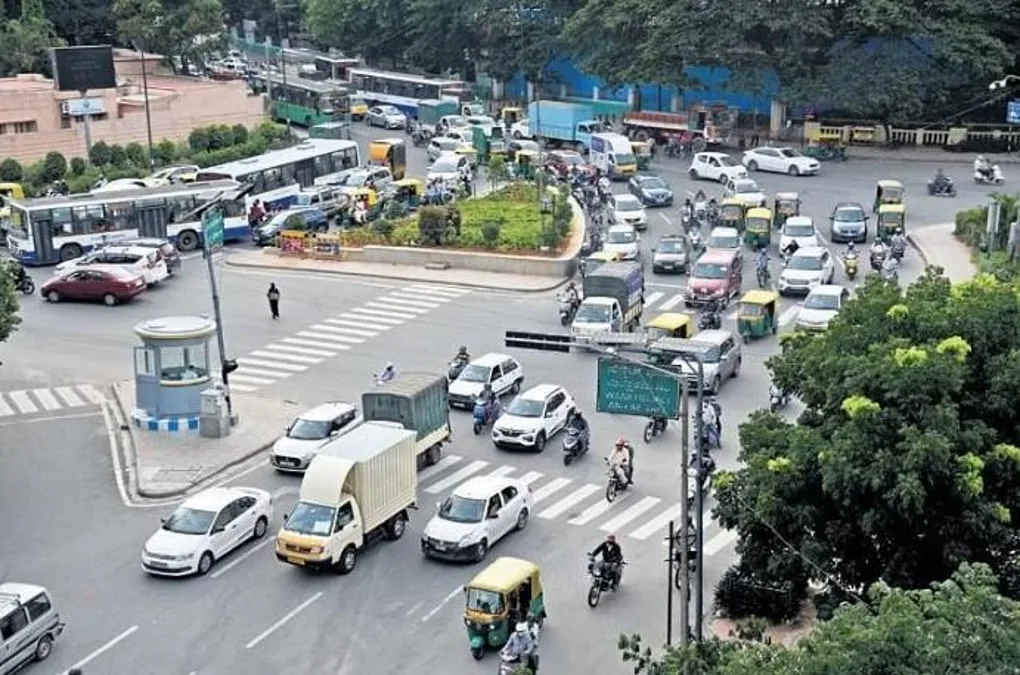Bengaluru Implements AI-Based Traffic Management for Decongestion

Bengaluru, ranked sixth globally among the most congested cities in 2023, is adopting innovative measures to alleviate traffic issues.
Bengaluru traffic police are utilizing data from 33 major tech parks and aggregators for traffic management, planning to expand the deployment of AI-based cameras from 50 to 500 junctions.
The use of Japanese ‘MODERATO’ technology in adaptive traffic signals, set to cover 28 major junctions, aims to reduce congestion by dynamically adjusting signal durations based on real-time vehicular flow.
This adaptive system, currently under testing, is expected to enhance traffic management, reduce delays, and improve travel time efficiency by up to 30%.
The Directorate of Urban Land Transport oversees the project, with full-scale deployment anticipated by March 2024.
Moreover, 50% of existing traffic signals will be upgraded to adaptive ones within 6-8 months, further contributing to streamlined traffic flow.
The Adaptive Traffic Signalling Control System (ATSCS) will not cover ten major congested junctions primarily located on the Outer Ring Road and outskirts of the city. The upgraded system aligns with Bengaluru’s efforts to enhance road safety and sustainable traffic management.
The city’s commitment to leveraging technology, such as the recently launched smart traffic engine ASTraM (Actionable Intelligence for Sustainable Traffic Management), underscores the importance of data-driven decision-making.
Congestion alerts, interventions, and engineering improvements are all part of Bengaluru’s comprehensive approach to address traffic challenges and create a more efficient and sustainable urban mobility landscape.









